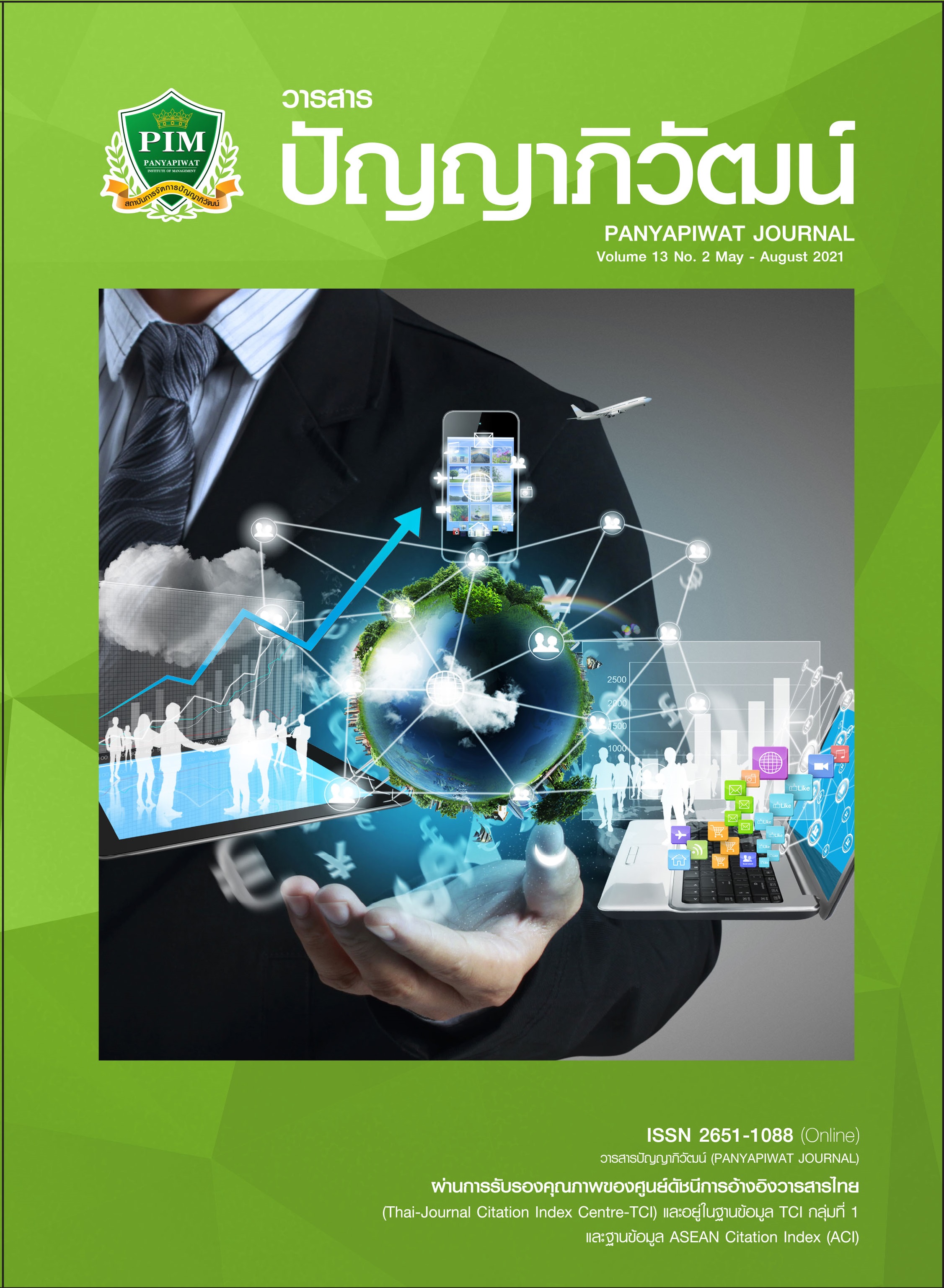CURRICULUM DEVELOPMENT OF TRAINING FOR TEACHERS IN THE ELDERLY LEARNING CENTER
Main Article Content
Abstract
The purposes of this study were to develop the training program for training teachers in the schools for elderly people, and to study the effectiveness of the developed training program. The research process was divided into 2 phases according to the objectives. In Phase 1, the researcher studied documents to create a prototype of a training program based on Taba’s 7 steps of curriculum development in order to enable teachers or resource persons of the school for elderly people to perform their duty of learning development or providing education for the learners based on the objectives of the school, with consideration of life quality of the elderly in the society of the elderly in Thailand in four dimensions of longevity, namely, economic, environmental, health, and social dimensions. Then, the researcher submitted the prototype training program to ask for opinions from experts and then developed a draft of the training program for teachers in the schools for elderly people to be tried out in the next phase. In Phase 2, the researcher took the draft of the training program to be tried out with a group of teachers in a school for the elderly people in Chachoengsao province. The try-out was an action research which included both the training activities and the actual practice teaching activities. The teachers were pre-tested and post-tested in the try-out in order to obtained data on the effectiveness of the program. After that, the try-out results and the results from a questionnaire on opinions were taken to develop the training program for teachers in the school for elderly people to provide teachers with the knowledge and skills to prepare the readiness of elderly people in the 4 dimensions as well as to develop the knowledge transfer process skills and learning management processes appropriate for the elderly which affect the learners and the quality of instruction.
The results of the study of the effectiveness of the program as reflected from the learning outcomes of the participants show that the objective management and the contents are very consistent; the duration of the training and the measurement and evaluation method are well managed; they can be well applied in the actual teaching practice that is appropriate for the elderly people in school; the management of contents, the training process and the evaluation during the training is appropriate and can be adjusted for the actual teaching practice; the learning contents and learning experience are appropriate for the learners; the participants in the training program can apply the contents for integration to be consistent with the nature of learners who are elderly people resulting in the continuity of doing activities; the elderly people achieve learning and have fun in the instructional process; as for the evaluation method, the researcher has used the interview, observation of participation in activities, and questioning and answering that can be actually used in the school for elderly people.
Article Details
I and co-author(s) certify that articles of this proposal had not yet been published and is not in the process of publication in journals or other published sources. I and co-author accept the rules of the manuscript consideration. Both agree that the editors have the right to consider and make recommendations to the appropriate source. With this rights offering articles that have been published to Panyapiwat Institute of Management. If there is a claim of copyright infringement on the part of the text or graphics that appear in the article. I and co-author(s) agree on sole responsibility.
References
CONS Magazine. (2020). Measures for Aging Have Quality In 4 Dimensions: Economy, Environment, Health and Society. Retrieved October 1, 2020, from https://bit.ly/3oSVeFa [in Thai]
Department of Older Persons. (2016). Seniors School Guide. Retrieved February 2, 2020, fromhttps://bit.ly/39LC6AD [in Thai]
Foundation of Thai Gerontology Research and Development Institute (TGRI). (2019). The Review on Indicators and Information Systems for Measuring Active Ageing in Thailand. Retrieved February 18, 2020, from https://bit.ly/38xB3nE [in Thai]
Jitapankul, S. (2001). Principles of Geriatric Medicine. Bangkok: Chulalongkorn University Press. [in Thai]
Kongjareon, M. & Boriboon, G. (2019). Development of the Community Learning Center Model for the Elderly. Department of Adult Education and Lifelong Education Faculty of Education Srinakharinwirot University. [in Thai]
National Education Act. B.E. 2542. (1999, 15 July). The Government Gazette. 42-48.
Phatphon, M. (2019). Contemporary Curriculum Development Model. Bangkok: Center for Innovation, Curriculum and Learning Leadership. [in Thai]
Ratana-Ubon, A. (2013). The Development of the Supportive Guidelines in Education/ Learning Management for Enhancing the Competencies of Older Adults in Thailand. Education Journal, 40(1), 14-28.
Taba, H. (1962). Curriculum Development: Theory and Practice. New York: Harcourt Brace Jovanovich. World Health Organization. (2002). Active Aging: A Policy Framework. Retrieved June 1, 2021, from https://qrgo.page.link/htHb9


